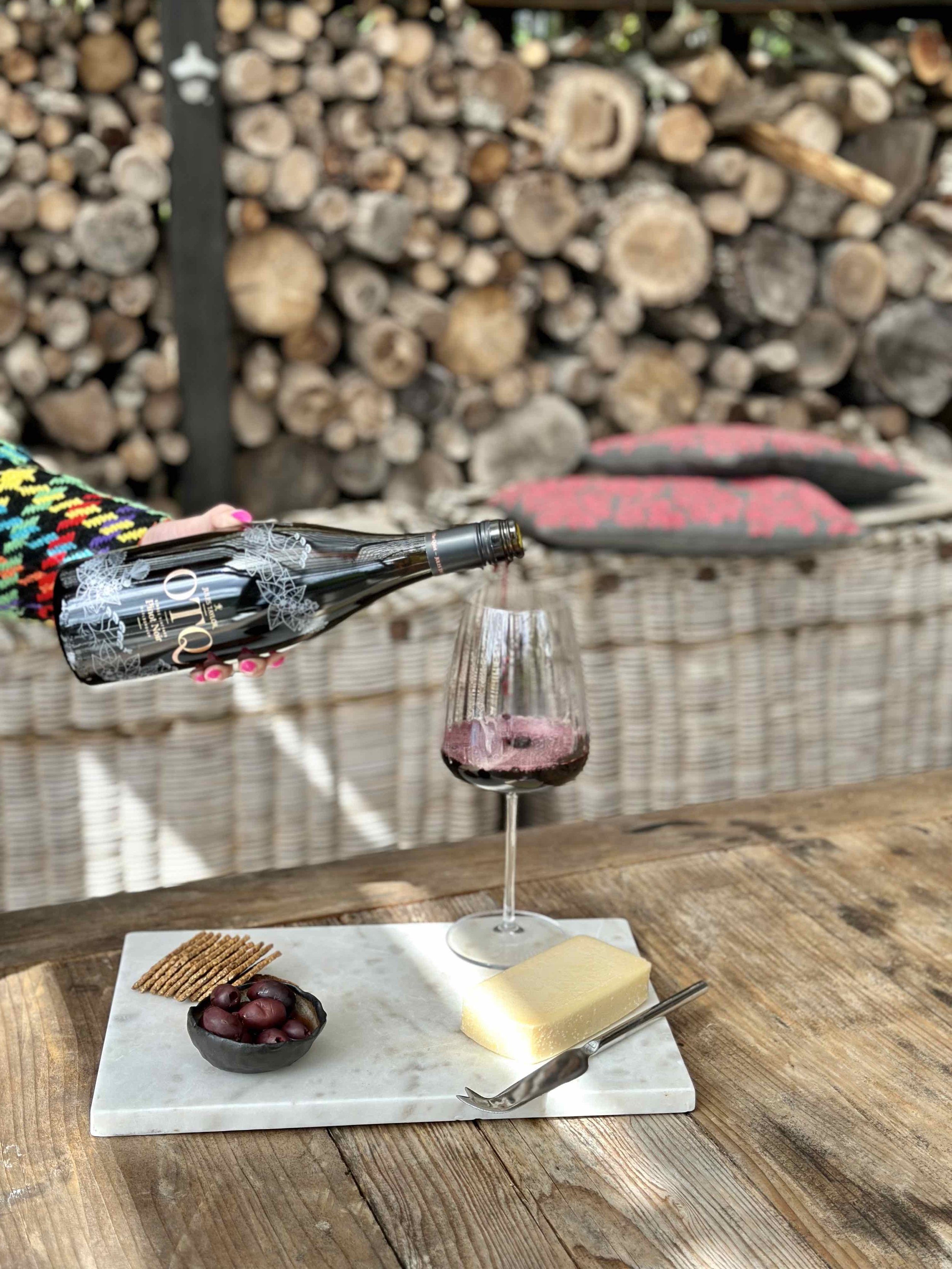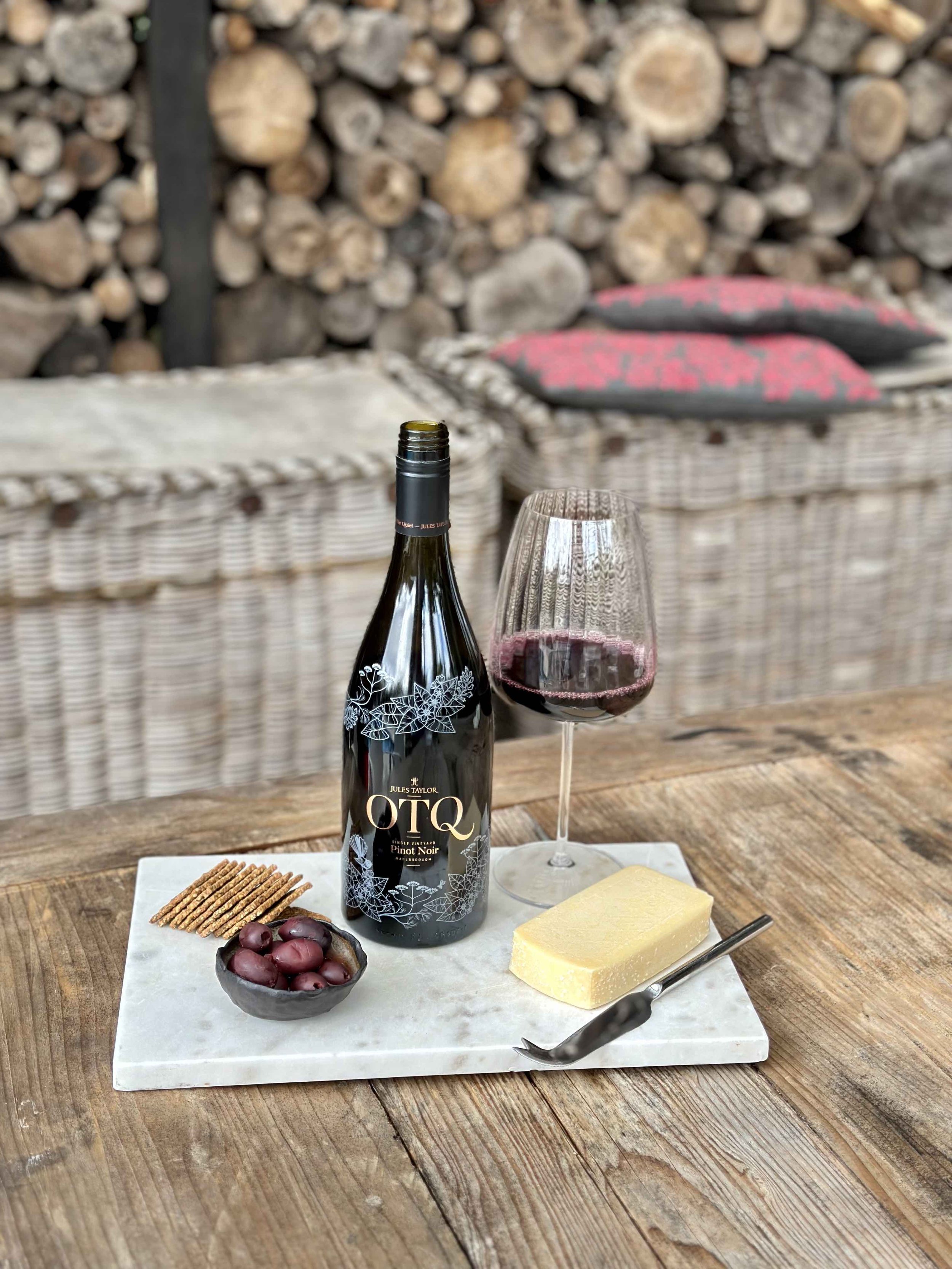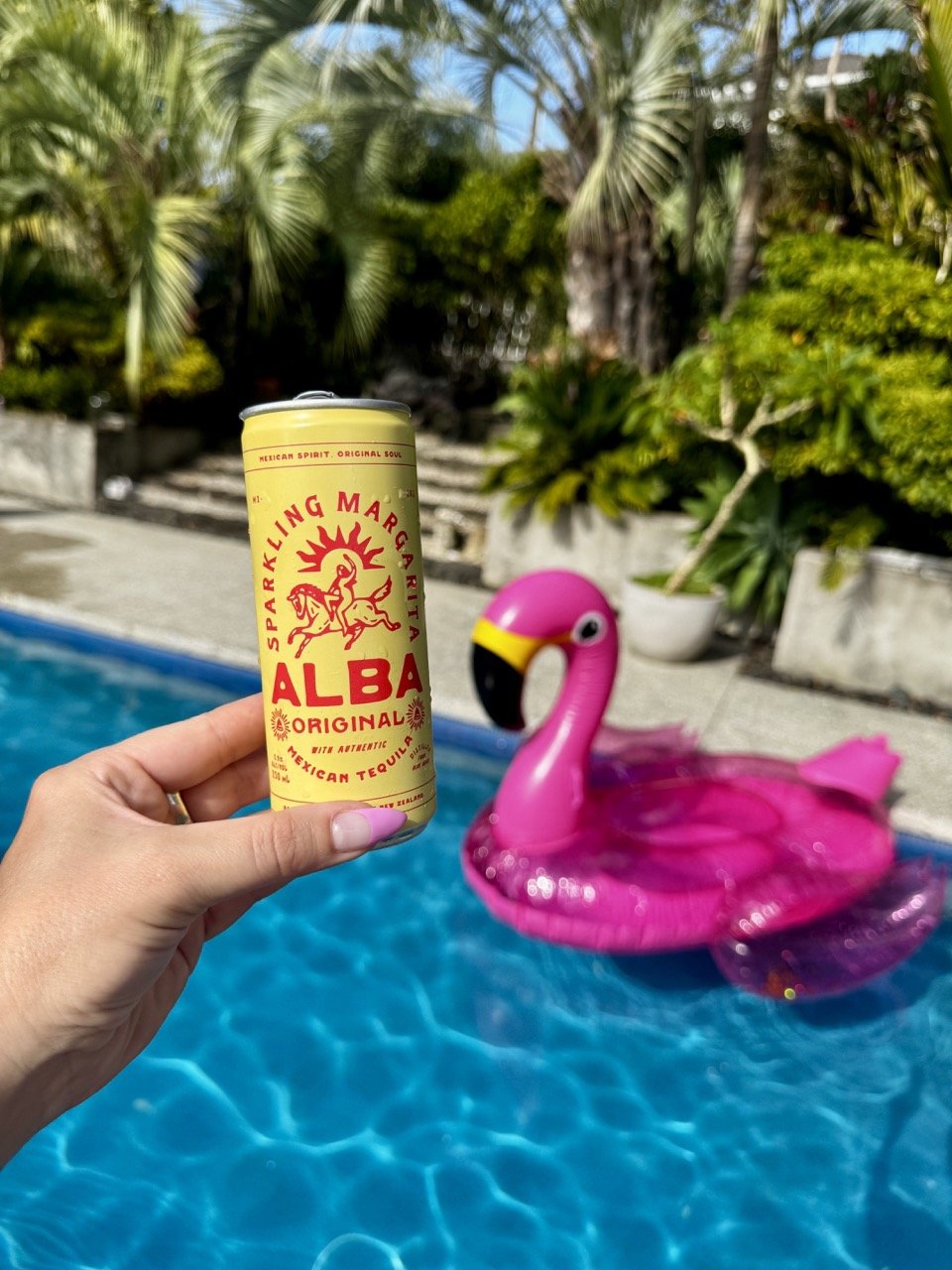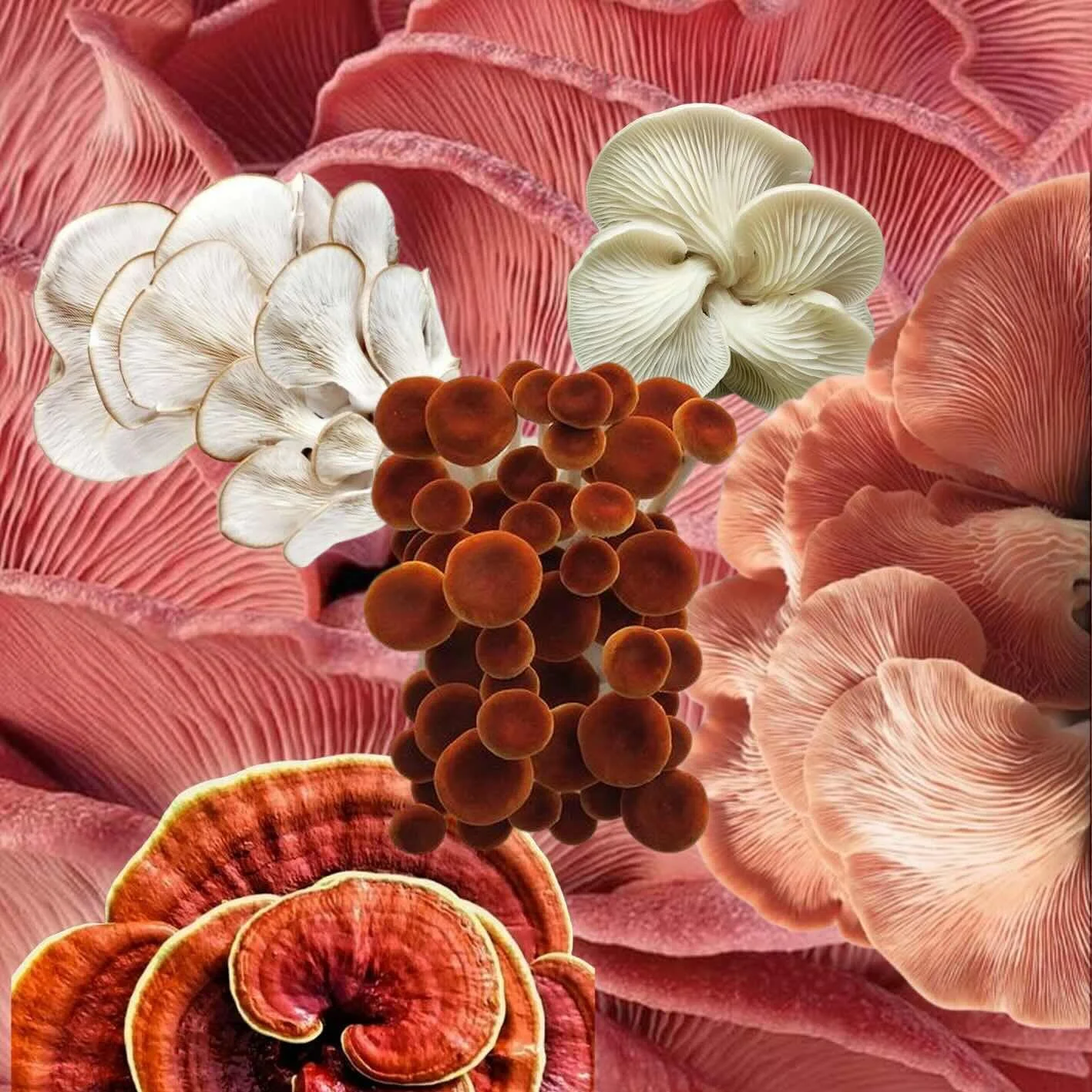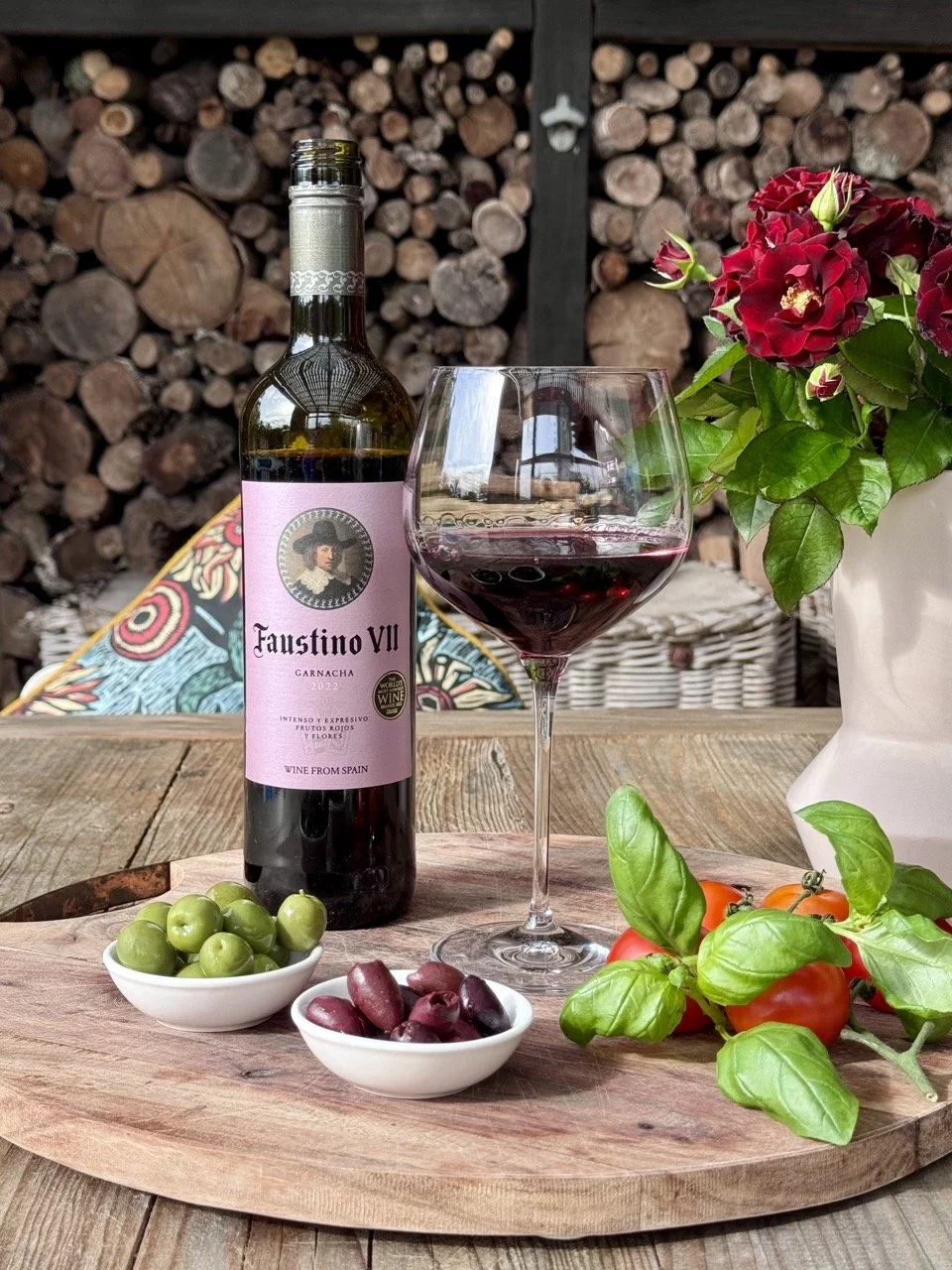She is one of this country’s most respected winemakers, and we are in awe of the path she is carving out for the next generation here in Aotearoa. Her latest project is an organic, full-bodied red. An investment born from her love of the land and hopes of leaving a better planet for her kids. Editor Trudi Brewer shares the new OTQ Pinot Noir.
Image BeautyEQ
Organic wine is more than delicious, and we are fans for several reasons: First, you're ingesting fewer toxins, herbicides and pesticides from the soil that transfer to the grapes, and GMOs or genetically modified organisms, which are prohibited in any organic farming. No dyes or other synthetic additives to improve the colour of the wine or, what experts say, the ‘mouth feel’. There is often less sugar and less sulphur dioxide- most organic wine contains half the maximum legal limit of sulphur dioxide (220), a common preservative in wine to kill unwanted yeasts and bacteria - it’s also named the culprit for that shocking hangover. Finally, organic farming practices are better for our planet, including green manures, water conservation, renewable resources and crop rotations. But don’t take our word for it; we asked one of our favourite winemakers, Jules Taylor, why the popularity of organic wine is on the rise.
“When I first started making my own wine, I never even thought I’d be able to grow it into a business that would feed two skinny kids… now those kids are heading away to university, and I’m increasingly concerned about the stamp we leave on the land for the next generation.”
Winemaker Jules Taylor
Q&A
What is organic wine?
Organic wine is made with no synthetic chemicals in the vineyard or winery. It is certified – in our case by Biogro NZ – to ensure that these claims are true so you can know that the wines have been grown and made without harming the environment. Limiting chemical use makes for healthier soils and greater biodiversity in vineyards, which is important. Some people claim there are impacts on wine or our health when consumed, but those arguments are less clear-cut.
What is the difference between natural wine and organic wine? Or organic and biodynamic wines? Or vegan vs. organic wine?
These terms all refer to different approaches. Biodynamic farming means certain practices are carried out in the vineyard in harmony with the moon's cycles and using certain preparations, such as cow manure buried in pits to age. The vineyard where the OTQ Pinot Noir comes from is organically certified and farmed biodynamically (although this isn’t certified). Natural wines usually refer to very hands-off processes in the winery, in that they limit the addition of even natural substances like sulphites (a natural preservative that has been used in winemaking for thousands of years). However, there is no certification for this term and wide variation in what winemakers claim is a “natural wine”. It’s controversial because many winemakers feel that their wines are “natural” anyway. Finally, vegan wines do not have animal products (like egg white) used to “fine” them or make them feel a bit smoother on your tongue. All Jules Taylor whites and rosés are vegan-friendly, whereas our reds are unsuitable for vegans.
Is there a difference between organic wine and wine made with organically grown grapes?
It’s confusing because many different terms are used in other countries with slightly different criteria for organic certification. These terms look at whether organic practices have been used in the vineyard and winery or just in the vineyard, but it varies depending on the country.
Does organic wine taste better?
That subject is great to debate after opening a bottle or two. Some people say yes, and some people say no. It probably comes down to the individual producer.
Do organic wines have less sulphites than regular wine? If so, why?
Possibly – but most wines would be well below the maximum thresholds and well below the levels found in many other food items. “natural wines” usually have lower sulphites.
Are organic and natural wines better for you, and are you less likely to get a hangover drinking organic wine?
Not necessarily. All wines should be consumed in moderation when considering their impacts on your long-term health or how you feel the next day.
What should you look out for when buying organic wine?
Look out for the certification logo. The most common ones in New Zealand are Biogro or Demeter.
Jules Tailor On The Quiet Pinot Noir, $50
This 2021 Pinot Noir is made from grapes farmed on Wrekin Vineyard in Marlborough’s Fairhall Valley. While Jules Tailor has been making an OTQ Pinot Noir from this site since 2016, this is the first vintage certified by Biogro’s organic programme.
What to serve with the new OT Pinot Noir?
Jules Taylor serves the new OTQ Pinot Noir with something substantial. Slow-cooked lamb, pulled pork or miso-glazed eggplant. “This 2021 vintage was super concentrated, with tiny berries making for a powerful wine that will open up over a meal but can easily be cellared for a few years.
The BeautyEQ team could not resist a platter with aged Castello Havarti, black olives and parmesan crackers - it was delicious.



